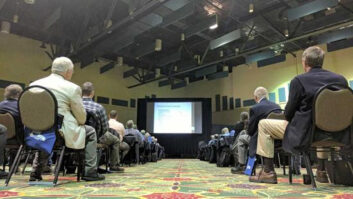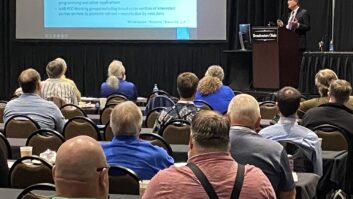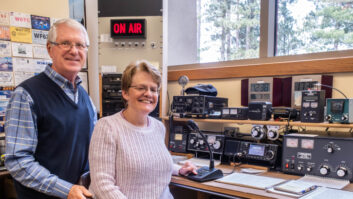I’m the director of the KBA WKU Radio Talent Institute at Western Kentucky University. Each year, I host a guest faculty of professional broadcasters — the best in their area of specialty — who teach at the institute. I also do a video interview with each of them, and I am always sure to ask what tips they have for aspiring radio broadcasters.
Today, I am going to share some of their career advancement advice.

Barbara BridgesBarbara Bridges, program director, WJXA(FM), Nashville, Tenn., emphasizes the importance of an internship.
“It’s always great if you can intern somewhere. Then you can really get a taste and feel for the business, a chance to experience real-life applications. Make sure you’re reaching out to people who are in the industry who can assist you. Let them know what your interests are. Get somebody to listen to an air check. Constantly network and get inside a radio station and experience it firsthand.”

Erica FarberErica Farber, president/CEO, Radio Advertising Bureau, Los Angeles, Calif., says you have to have a passion — for radio.
“You have to show you are willing to work hard. But you also have to be specific, and what I mean by that is that we don’t always know what we’re going to do for the rest of our lives. One thing that experience shows us is how many of our own peers woke up one day and have been doing something for 30 years and aren’t happy in their careers. So when you’re first starting out, it’s OK to move around and make changes. You may think you want to be on air and find that you like being in the sales area. You need to be very specific and very organized to go after that, and sometimes we are actually afraid to say that. You [need to show] that you’ll work hard, you’re willing to roll-up your sleeves and in the beginning you’re willing to do just about anything and I think people respond to that.”

Kevin RobinsonKevin Robinson, program director and talent coach, St. Louis, Mo., recommends networking.
“Find a mentor or two that you respect and continue to be in contact with them. Don’t be afraid to take out the trash at the radio station. Just get your foot in the door. You learn by osmosis, by being around and just seeing things, and how people operate, and how different radio stations go about business. Get inside a radio station and continue to network, because the radio people who really love it — like you and I do, and we have for several decades — we’re not going anywhere, we’re going to be here. Don’t be afraid to move if you feel it’s going to advance your career.”

Don AnthonyDon Anthony, founder and president, Talentmasters, Atlanta, says students in a job interview should focus on their desire and their confidence.
“Focus on who you are, be yourself, and what you’re selling — your desire, your passion, for what you want to get in to. Put more emphasis on your want and need to get into the business and what you’re going to do once you get into it. … Be confident and build relationships.”

Chris LynnChris Lynn, program director/air talent, WRRM, Cincinnati, Ohio, advises students to bug the heck of somebody and not go away.
“Find someone that will mentor them. Ask lots of questions. Find a radio station you want to get into. Find a specific employee that attracts them and ask what can I do, who can I meet, what can I learn and learn everything immediately, and the sooner the better.”

Derron SteenbergenDerron Steenbergen, chief revenue officer, Commonwealth Broadcasting, Glasgow, Ky., says be a proactive individual who has a passion for the business, a passion for people, who has a work ethic, who wants to get into our business and to invest the time and energy to learn.
Be proactive, and don’t think you can send one email and expect that to move the meter. Walk in the door and shake someone’s hand. The first sale they have to make is selling us on they’re someone we need to talk to. I had someone tell me one time ‘I’m really too busy to let you in the first time. If you’re not willing to make the effort to try a multiple of times, then you’re probably not someone I want to meet with.’ It’s their responsibility to get to us; the opportunities are there.”

Kelly CarlsKelly Carls, regional programming manager, iHeartMedia says people must be willing to do anything, anytime, anywhere.
“If you’re willing to work on weekends, on holidays, doing the jobs other people don’t want to do, jump in and do them. That will do two things: give you a well-rounded background in the business and it will also establish you as a person who’s truly dedicated to the cause and people will notice that. They will notice the passion. Passion sells.”
I think you can recognize a theme, from these professionals, no matter what aspect of the radio business you’re interested in pursuing, and I hope you put this advice into practice.
Dick Taylor is a Certified Radio and Digital Marketing Consultant and assistant professor of broadcasting at Western Kentucky University in Bowling Green, Ky.












